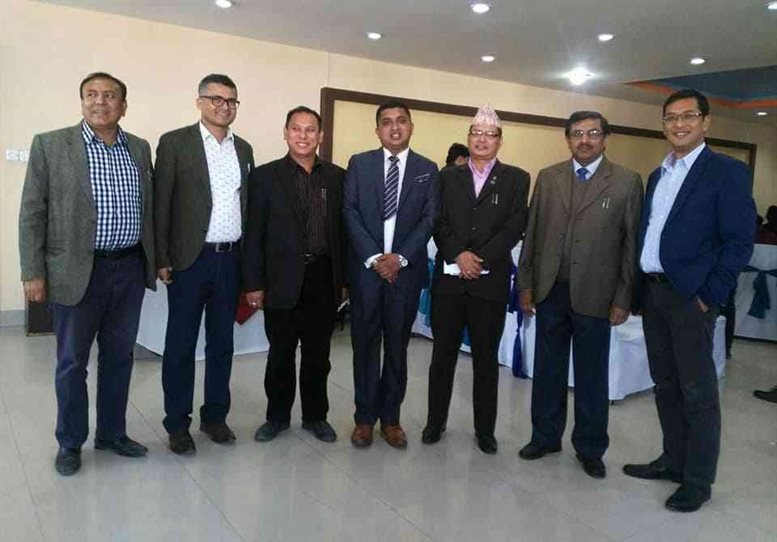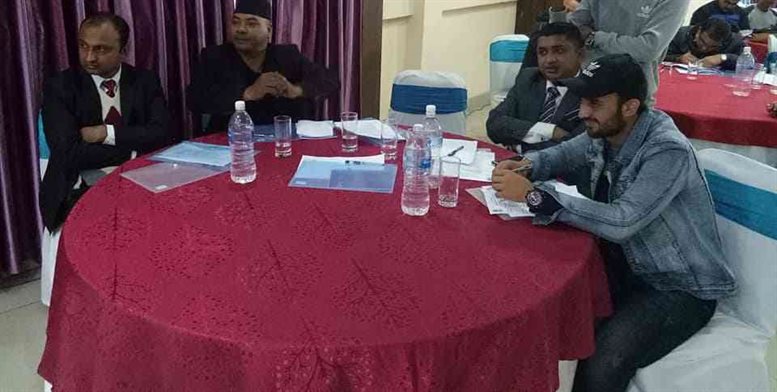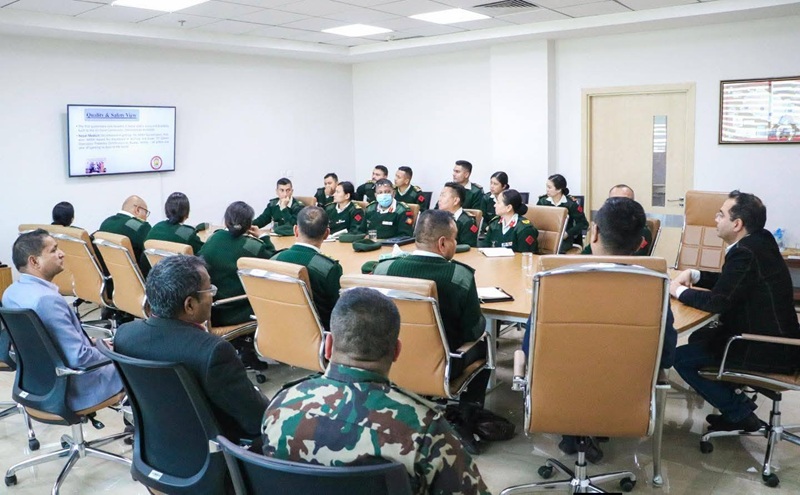Social Dialogue Program On Empowering IT Workers
Social Dialogue Program on Empowering IT Workers: ICTs in the New Economy
17 November 2017, Kathmandu, Nepal
The program was held by UNITES Nepal (Union For IT and IT-enabled Sector in Nepal) along with coordination from UNI NLC(Union Network International, Nepal Liaison Council)with the common motto of presenting the discussion platform among the different stakeholders in Nepal related to ICT Sector.
The discussion in the program was based on the paper presented by MR. Manohar Kumar Bhattarai (Former Vice president HLCIT). Mr. Bhattarai also acted as a moderator for the program. The program had four different panel representations from the Government sector, Employers, Experts, and Trade Union Leaders along with the participation from different individuals representing the IT industry in Nepal.
Chief Guest for the program Mr. Prem Kumar Shrestha (Joint Secretariat-MOIC) highlighted the importance of ICT in daily life.He also focused on dependency in the ICT sector in present time and how adaptive we must be toward IT sector for the sustainable development of the nation and to catch up with technological development achieved in other corner of the world.
The Establishment of Ministry of Science and communication, Ministry of Information and Technology, Department of Information Technology, National Information commission And National information Technology center also shows the clear inclination and internet of government towards maximizing the use of ICT in the overall development of the Nation , He further added the program which is set by government to establish a fiber connection to at least headquarters of all 75 districts.
He also added the government has continuously been involved in raising the ICT sector from the root level itself. As a result, 6-7 million worth of computer equipment is distributed to many government schools and required training and orientation are also provided to the operation of that equipment will not lack the operators.
- Mr. Shankar Lamichhane, the president, opened the floor raising the question about the possibility of IT in Nepal with the significant number of pass-outs each year and the possibility and prospects of this sector. Mr. Bhattarai presented a paper highlighting the following points:
- The only Raw material used in this sector is human resource
- The development of this sector brings overall development of all the sector government sector, private sector, employers, employee, etc.
- To raise a question on the decent job issue without any significant development and increase in this sector will not be fair so we must focus on the increase in the productivity of this sector first.
- Other development may take time in our country, but the technological progress will not take time so we must be prepared accordingly
- IT sector is a knowledge-based work as all the rules are predefined and have to work with all the algorithms. As a result, the threat of automation is also not far.
- The Use of IBM in the 1970’s itself shows how long it’s been the ICT penetration in our country but the development this sector needed to achieve it could not.
- In the 1970s in this sector, Nepal was ahead of India.
- Nepal’s rank in the global tally of ICT is also reduced.IT lines in 132 in ICT index.
- The companies in Kathmandu are mainly Kathmandu eccentric.
- Some of the companies have set a clear example that we can also solve the global client and even compete with the worldwide market.
- The contribution of the ICT sector in GDP Is also poor.
- The use of ICT is most to work on visions of government like transparency in operations.
- ICT provides the mechanisms and shows the direction to the plans of the government.
- Government automation must be increased.
With this scenario, if all the stakeholders work together the overall development of the country is also possible else the job opportunity will also not increase, and the economy will also not be benefited. We must also prepare the human resource accordingly so the advancement in technology will not move far from the grasp. So I think empowering IT workers is also must.E empowering does not only mean personal development it can also be achieved through the social dialogue program.
And also we see a lack in the carrier paths in the IT company.T the proper definition of carrier and position should be made, so one individual does not have to stay in one place forever. As a result, there will not be a problem like retention. Also, the fact is we don’t take the job as seriously as a foreigner does. Attrition level among the employers is too high as a result the movement of an employee from one sector to another is also high. The office facility must be addictive to the employee to work for a long time, and there should also be some provision of social dialogue to bind employee for a longer duration of time.
The entire discussion started after this presentation.
Now the points raised during the discussion are:
ISSUES:
- The problem of retention of the skilled human resource among IT companies is a big issue.
- IT is not employers driven it is and employee driven industry.
- Different facilities are provided in companies along with recreation to increase the interest of employee toward the company.
- Digital transaction in Nepal is still below 1%
- The government declared the project of developing broadband to different parts of the country, and in the following year, it increased the tax in it. As a result, it increases the costing charge which also raises question against the government intentions
- They lack baseline data of this sector.
- Even IT companies itself refuse to provide their data as a result of position this sector is also really challenging.
- The increasing number of government departments and ministries is also not assisting in the development of this industry.T here must be only one ministry to review the actions in this industry.
- Definition of job type in this industry is also challenging.
- Due to the lack of social security, Even the high payments does not let employee fell secure for his/her future.
- Nepali IT market is the weak market and to speak about rules, regulations and social security in a weak demand is also not justifiable.
- Weak Educational approach is also affecting this industry as it stills lack in skilled workers.
Findings:
- Proper social security and job definition will help reduce the retention problem. The new labor act has clearly defined the different job types and categories so with this flexibility the contract, and the project based workers can also be managed.
- The improvement in the course and education is must as the quality of inputs define the quality of output from the industry.
- Only 1 % penetration in digital transaction shows the opportunity and prospect in this field.
- Use of ICT can also help reach the government intent and visions and also increase the transparency in government operations.
- The mobile penetration in the country is 135%, and data/internet penetration in the country is 62%.
- By 2018 80% of government services to be online.
- Increase the reach to the internet by providing at least 512 kbps internet in all the village bodies.
- The government has also created the environment for private investors in this sector.








